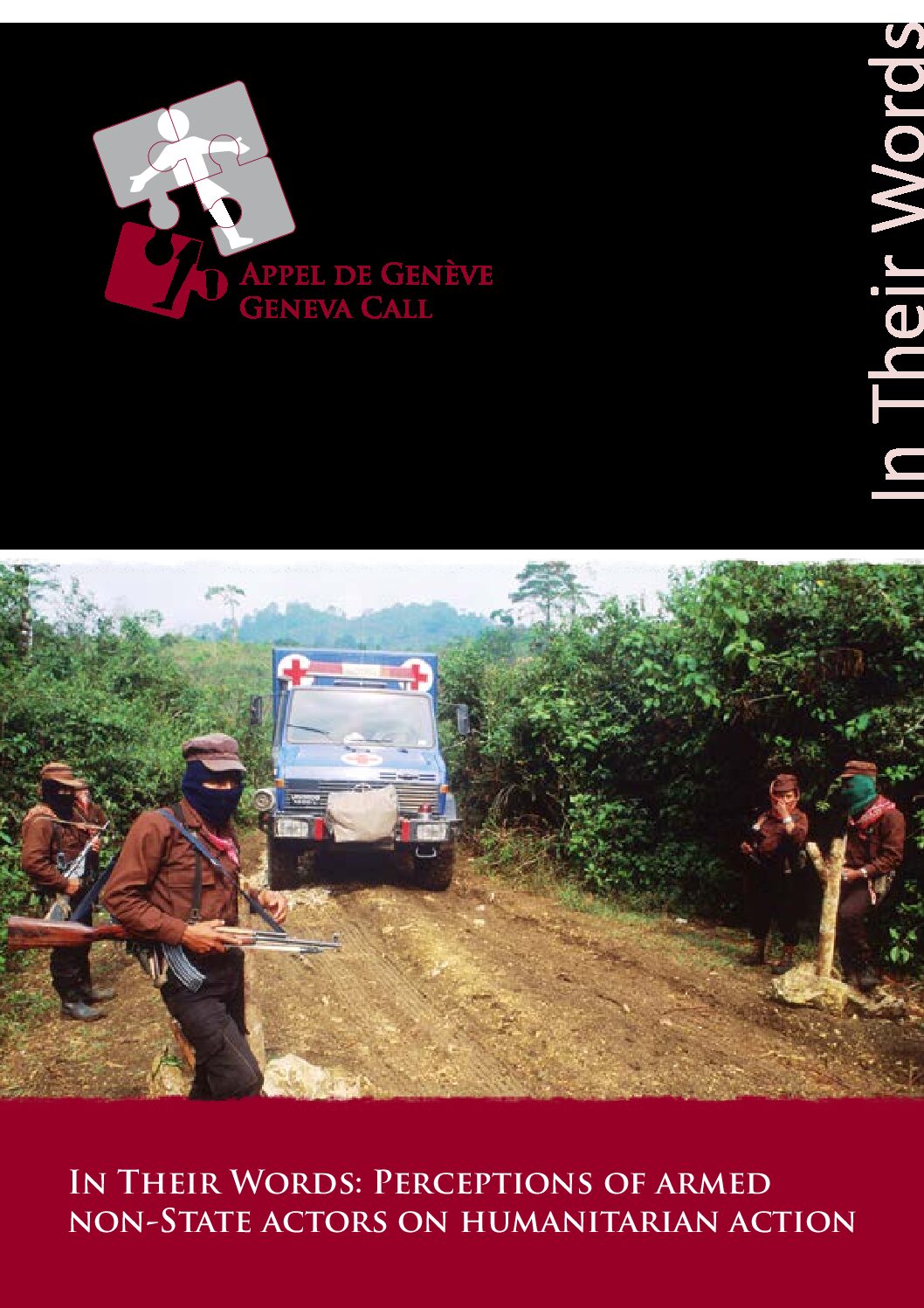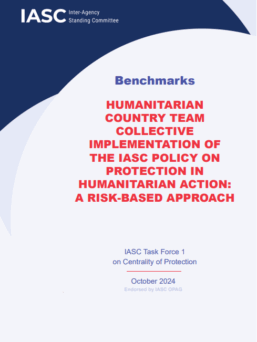As humanitarian actors increasingly operate in situations of internal armed conflict, the importance of negotiating with armed non-state actors (ANSAs) to ensure access has come to the forefront. Yet humanitarians on the ground and the broader international humanitarian community often fail to understand ANSAs’ perspectives and motives and, as a result, struggle to engage with them effectively.
The report focuses on the ways in which ANSAs understand humanitarian action and their knowledge and acceptance of humanitarian principles and IHL. A comprehensive analysis requires an understanding of how ANSAs and other duty-bearers perceive their role regarding protection and is key to addressing the threat component of risk for populations. Additionally, in breaking down the changes required to reduce a protection risk, it is important to assess where changes need to be made, either in policy, practice, behavior, and/or attitudes.



